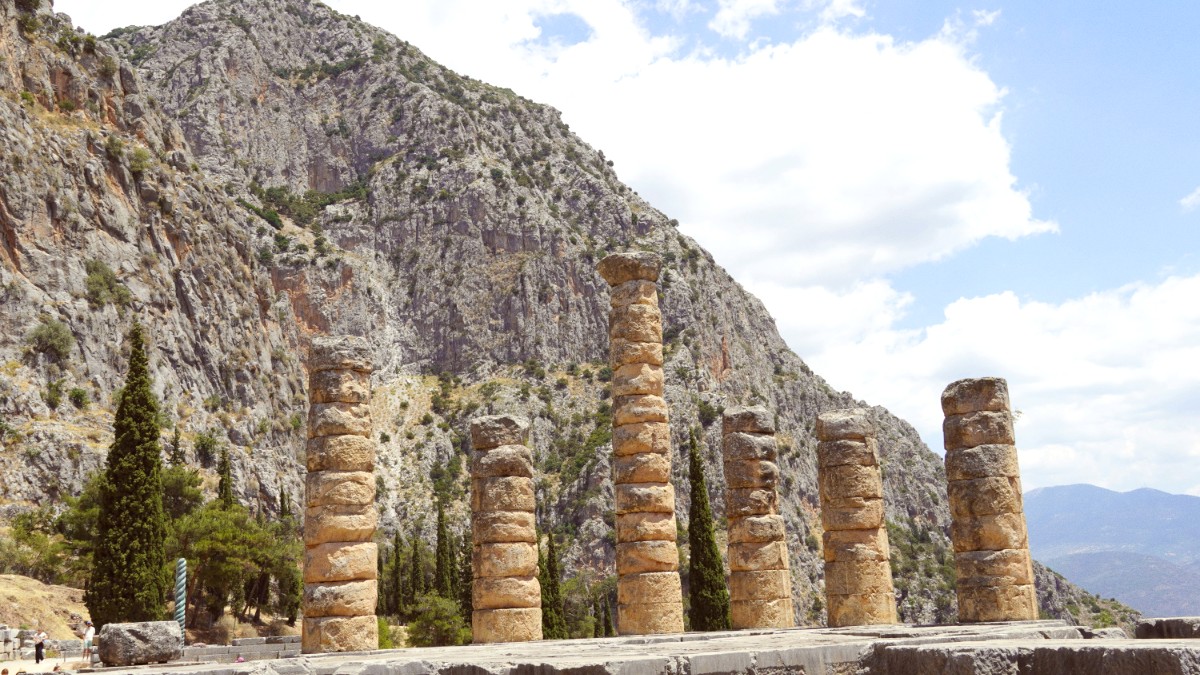
Greece
This park protects the rich biodiversity of the mountain range surrounding Delphi. It includes forests, unique flora, and endemic species. When exploring, stick to marked paths. Avoid disturbing wildlife or collecting plants.
The Delphi archaeological site holds UNESCO World Heritage status for its cultural significance and the integrity of its natural setting. Preservation efforts extend to maintaining the balance between the ancient ruins and their environment. Support these efforts by following all site rules.
Greece continuously works to improve its waste management and recycling infrastructure. Recycling bins are available in some public areas of Delphi village. Minimize plastic consumption: carry a reusable water bottle and shopping bag.
Embrace sustainable and culturally sensitive travel practices in Delphi.
Water is a precious resource in Greece, especially during the dry summer months. Mindful usage is appreciated.
Mitigate the environmental impact of your travel through conscious choices.
Support hotels and guesthouses committed to sustainable practices.
Choose tour providers that prioritize responsible tourism and local benefit.
Entrance fees at the archaeological site and museum directly fund ongoing conservation work. Learning about Delphi's history deepens your appreciation.
Prioritize items from local artisans. Use a Reusable shopping bag. Consider eco-friendly gear from Patagonia or reusable products from Package Free Shop.
Every action counts towards preserving Delphi's natural and cultural legacy for future generations.
Cultural sensitivity and economic choices define responsible travel, enriching both your journey and the local community.
Simple gestures and awareness of local norms promote positive exchanges.
Navigating photo opportunities with respect for individuals and private spaces.
Your choices can directly benefit the Delphi community and its residents.
Conscious purchases contribute to local craftsmanship and fair wages.
Ethical travel includes refraining from exploitation and directing charitable efforts responsibly.
Avoid engaging in any activities that exploit animals or people during your travels.
Exercise caution with direct begging. Consider supporting reputable local charities instead of giving money directly to individuals on the street.
Identify established and transparent local charities, NGOs, or community projects to ensure your donations support community needs effectively. Inquire at your hotel or a tourist information office.